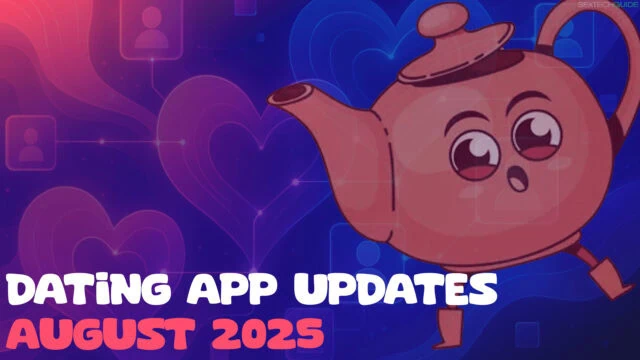It’s been another busy two weeks in the world of dating apps, so we’ll waste no time in walking you through updates from Chapter 2, Hinge and a dating scam that’s funnelling cash to the Islamic State.
Chapter 2: a dating app for widows and widowers
A new dating app for widows and widowers has been launched by Manchester, UK-based entrepreneur Nicky Wake, herself a widow.
The app, Chapter 2, launched on November 23, 2022. As well as matching people it will offer forums for those who have lost a partner and are looking for community. There will be sections focusing on legal, financial and emotional support, plus information about solo parenting and children dealing with grief.
Profile photos on the app need to have been taken within the past year, to help maintain their accuracy.
Wake told the Manchester Evening News: “What I’m doing is trying to help people find joy again and realize that they can move into a different chapter but still respect what’s gone before. At no point do we use the word ‘move on’, it’s ‘move forward’.”
Hinge – no longer designed to be deleted
Hinge has added an option for users to declare that they are seeking a non-monogamous relationship on the app, which had previously marketed itself at people looking for a long-term relationship.
Hinge’s tagline is, ‘The dating app designed to be deleted’. However, following the new move, under the ‘Virtues’ section of the app you will be able to select if you are after a monogamous or non-monogamous relationship, or if you are undecided on the matter.
Speaking about the pivot, Michelle Parsons, Hinge’s chief product officer, said: “Hinge is the place for all daters to find intentional and meaningful romantic connections, and I want it to enter a new era of dating where the word ‘relationship’ defies traditional and heteronormative meaning.”
Very 2022 of them.
Islamic State goes catfishing in South Africa
Scammers from the Islamic State have reportedly been targeting dating app users in South Africa, coercing them into giving them money that is then used to fund the terrorist organization.
The South African Banking Risk Information Centre watchdog warned that fake profiles on dating apps were being used to instigate matches in what sounded like classic catfishing scams, before scammers persuaded app users to send them money, reported The Times [paywall].
Islamic State has reportedly set up bases in South Africa to push fundraising and recruitment efforts, and to bankroll its insurgency efforts across Africa.
Since the terrorist organization was defeated in the Middle East it has focused more attention in Africa. The Institute for Security Studies in Pretoria, South Africa, has said that Islamic State has “expanded its influence beyond measure” in the continent.
Agents of the group have reportedly been using photos of little-known models and actors for their dating app scams. So, if you’re swiping in South Africa, try to verify if you’re really matching with a bit-part actor from a dodgy soap opera, because you could actually be setting up an expensive date with a violent extremist.
Bumble end of year roundup
It’s not yet December, but Bumble has got in quick with its end of year trends survey wrap-up, and the results from the ‘women in control’ dating app are mildly interesting.
Some findings are in line with the cultural and buzzword trends you’d expect, such as 54 percent of responders to Bumble’s survey saying they “care more about their work/life balance than their career status”.
Self-care still seems to firmly be a ‘thing’, with 52 percent of responders saying that over the past year they have been “actively creating more space for breaks and rest”.
Following from this, around one in ten respondents said they will no longer “date someone who has a very demanding job”.






Leave a Reply